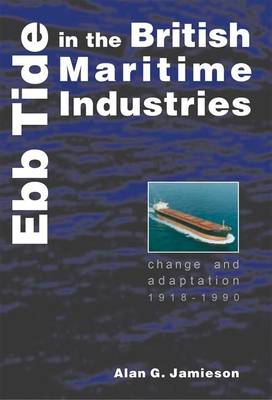
- Afhalen na 1 uur in een winkel met voorraad
- Gratis thuislevering in België vanaf € 30
- Ruim aanbod met 7 miljoen producten
- Afhalen na 1 uur in een winkel met voorraad
- Gratis thuislevering in België vanaf € 30
- Ruim aanbod met 7 miljoen producten
Zoeken
€ 118,95
+ 237 punten
Omschrijving
This book examines how the principal British maritime industries - shipping, shipbuilding and ports - adapted, or failed to adapt, to a changing world in the period 1918 to 1990, and discusses their reactions to the great opportunities seemingly offered by offshore oil and gas from the mid-1960s. At the outbreak of World War I, Britain's maritime industries still dominated the world. The British merchant fleet was by far the largest in the world, the nation's shipbuilding output eclipsed all rivals, and British ports were busy and expanding. By 1990, British shipping was a shadow of its former self, shipbuilding seemed on the verge of total collapse, and although the ports had been modernised, trade was concentrated at only a few of them. For almost four centuries, these industries had been of vital importance to Britain's wealth and power, but by 1990, politicians scarcely gave them a second thought.
Specificaties
Betrokkenen
- Auteur(s):
- Uitgeverij:
Inhoud
- Aantal bladzijden:
- 320
- Taal:
- Engels
- Reeks:
Eigenschappen
- Productcode (EAN):
- 9780859897280
- Verschijningsdatum:
- 3/01/2002
- Uitvoering:
- Hardcover
- Formaat:
- Genaaid
- Afmetingen:
- 160 mm x 243 mm
- Gewicht:
- 580 g

Alleen bij Standaard Boekhandel
+ 237 punten op je klantenkaart van Standaard Boekhandel
Beoordelingen
We publiceren alleen reviews die voldoen aan de voorwaarden voor reviews. Bekijk onze voorwaarden voor reviews.











